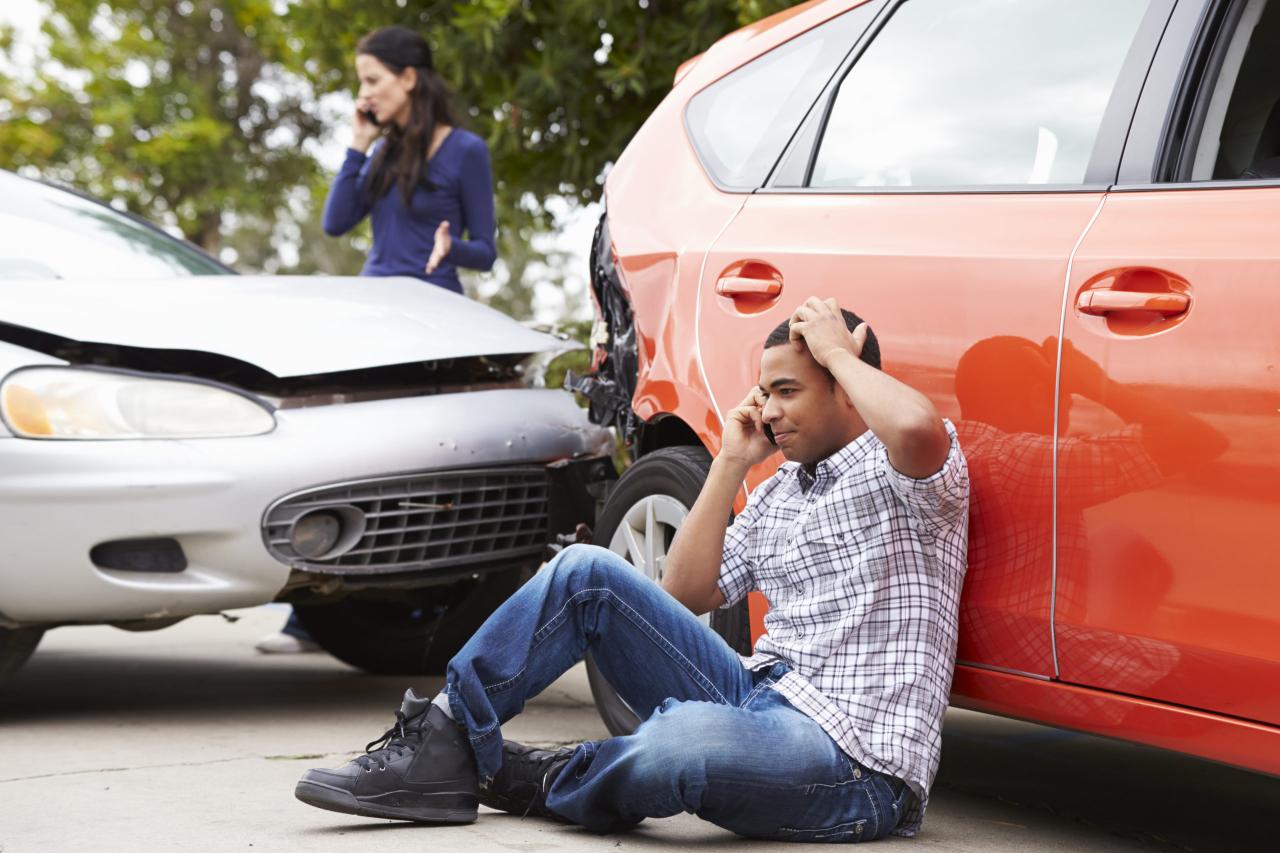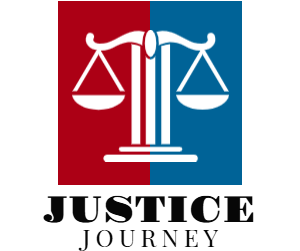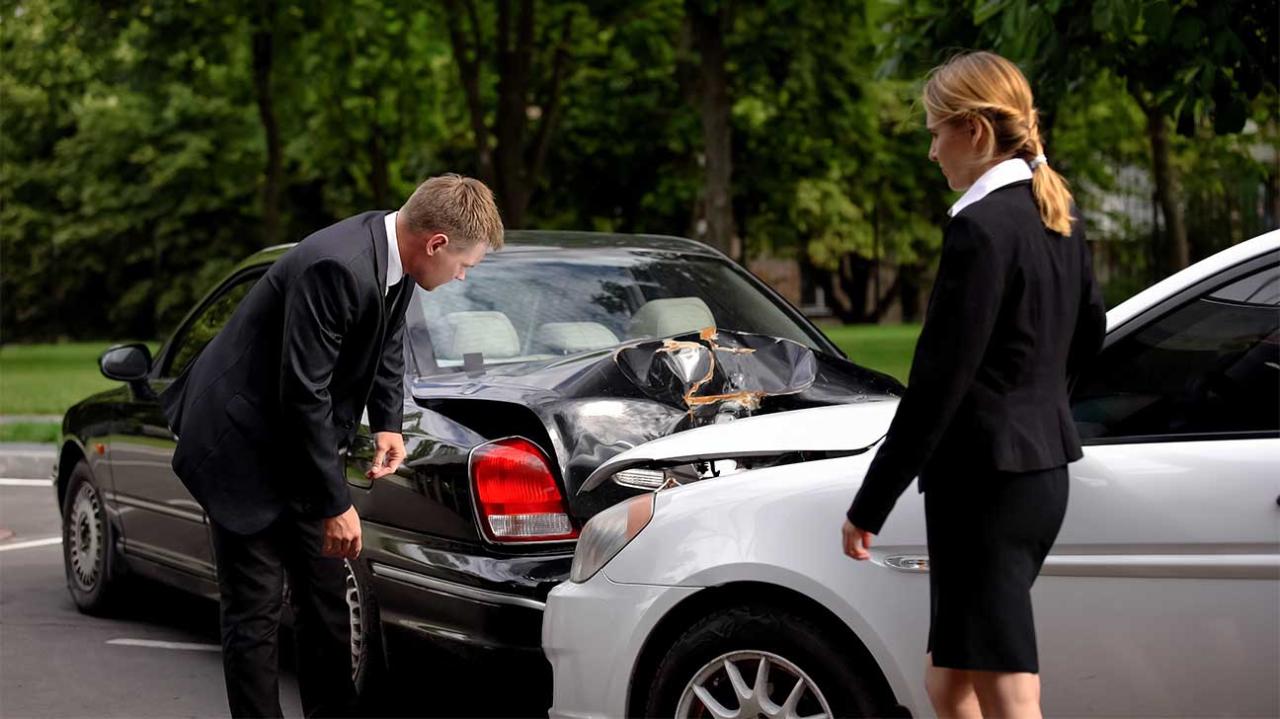Car accidents lawyers near me are essential allies when navigating the complex legal landscape after a collision. Whether you’re dealing with injuries, property damage, or insurance disputes, a skilled attorney can provide the guidance and support you need to protect your rights and seek fair compensation.
Car accidents are unfortunately a common occurrence, and their aftermath can be overwhelming. Understanding your legal options and having an experienced advocate by your side can make a significant difference in the outcome of your case. This guide explores the vital role of car accident lawyers, the types of compensation available, and the steps involved in pursuing a successful claim.
Understanding Car Accidents: Car Accidents Lawyers Near Me
Car accidents are a prevalent issue, affecting countless individuals every year. They can range from minor fender benders to severe crashes resulting in serious injuries or fatalities. Understanding the common causes, types, and statistics of car accidents is crucial for drivers and passengers alike.
Common Causes of Car Accidents
Car accidents can occur due to a variety of factors, with driver error being the most significant contributor.
- Distracted Driving: Using a mobile phone, adjusting the radio, or engaging in other activities that take attention away from the road.
- Speeding: Exceeding the speed limit or driving too fast for conditions can reduce reaction time and increase the severity of an accident.
- Drowsy Driving: Fatigue can impair judgment and reaction time, making it difficult to stay alert and focused on the road.
- Driving Under the Influence: Alcohol and drug impairment significantly increase the risk of accidents, affecting coordination, judgment, and reaction time.
- Aggressive Driving: Tailgating, speeding, and weaving through traffic can lead to collisions.
- Road Conditions: Poor weather conditions such as rain, snow, or ice can make roads slippery and reduce visibility.
- Vehicle Malfunctions: Brake failure, tire blowouts, or other mechanical issues can contribute to accidents.
Types of Car Accidents
Car accidents can be classified based on the manner in which they occur.
- Rear-End Collisions: Occur when a vehicle strikes another vehicle from behind. These accidents are often caused by distracted driving, following too closely, or sudden braking.
- Head-On Collisions: Involve two vehicles colliding directly into each other. These accidents are often caused by driving on the wrong side of the road, passing improperly, or losing control of the vehicle.
- Side-Impact Collisions: Occur when two vehicles collide at an angle, often at an intersection. These accidents can result in serious injuries due to the force of impact.
- Rollover Accidents: Involve a vehicle flipping over. These accidents are often caused by speeding, loss of control, or hitting a curb or other obstacle.
Car Accident Statistics
According to the National Highway Traffic Safety Administration (NHTSA), in 2020:
- There were approximately 6.7 million car accidents reported in the United States.
- Over 39,000 people died in car accidents.
- More than 4.5 million people were injured in car accidents.
The Role of a Car Accident Lawyer

After a car accident, you might be dealing with injuries, medical bills, and property damage. Navigating the legal process can be overwhelming, especially if you’re unfamiliar with insurance claims and personal injury law. This is where a car accident lawyer comes in.
A car accident lawyer is a legal professional specializing in representing individuals who have been injured in car accidents. They have extensive knowledge of personal injury law, insurance policies, and the legal system, enabling them to effectively advocate for their clients’ rights and interests.
Services Offered by Car Accident Lawyers
Car accident lawyers offer a wide range of services to help their clients navigate the complex legal landscape.
- Investigating the accident: Lawyers thoroughly investigate the accident to gather evidence, including police reports, witness statements, and medical records, to build a strong case.
- Negotiating with insurance companies: Insurance companies often try to minimize payouts, but a lawyer can negotiate on your behalf to ensure you receive fair compensation for your injuries and losses.
- Filing a lawsuit: If a settlement cannot be reached, a lawyer can file a lawsuit on your behalf to pursue your legal rights in court.
- Representing you in court: A lawyer will represent you in court hearings and trials, advocating for your rights and interests.
- Advising on legal options: Lawyers provide guidance on your legal options and explain the potential outcomes of your case.
How a Lawyer Can Help Victims Navigate the Legal Process
Car accidents can be traumatic, and dealing with legal matters adds another layer of stress. A lawyer can help you navigate the legal process by:
- Gathering and organizing evidence: Lawyers have the experience and resources to gather all necessary evidence, such as police reports, medical records, and witness statements.
- Communicating with insurance companies: Lawyers act as intermediaries between you and insurance companies, handling all communications and negotiations.
- Filing claims and lawsuits: Lawyers understand the legal procedures for filing claims and lawsuits, ensuring everything is done correctly and within the appropriate timeframes.
- Preparing for court hearings and trials: Lawyers will prepare you for court hearings and trials, ensuring you understand the process and your rights.
- Protecting your rights: Lawyers are dedicated to protecting your rights and ensuring you receive fair compensation for your injuries and losses.
Importance of Seeking Legal Representation After a Car Accident
While you may think you can handle the legal process yourself, seeking legal representation after a car accident offers several benefits:
- Maximizing your compensation: A lawyer can help you maximize your compensation by negotiating with insurance companies and pursuing all available legal options.
- Protecting your rights: Lawyers have a deep understanding of personal injury law and can ensure your rights are protected throughout the legal process.
- Reducing stress and anxiety: Having a lawyer handle the legal aspects of your case can alleviate stress and anxiety, allowing you to focus on your recovery.
- Saving you time and effort: Dealing with insurance companies and legal procedures can be time-consuming and complicated. A lawyer can handle these tasks for you, saving you time and effort.
- Increasing your chances of a successful outcome: Statistics show that individuals with legal representation often receive higher settlements and more favorable outcomes in car accident cases.
Types of Compensation Available
After a car accident, you may be entitled to compensation for various losses, including medical expenses, lost wages, and pain and suffering. Understanding the different types of compensation available can help you navigate the legal process and maximize your chances of a successful claim.
Economic Damages
Economic damages represent quantifiable financial losses resulting from the accident. These damages are typically easier to prove and are often the most significant component of a car accident settlement.
- Medical Expenses: This includes all costs related to your treatment, such as hospital bills, doctor’s fees, ambulance charges, physical therapy, and medication.
- Lost Wages: This covers the income you lost due to being unable to work after the accident. It includes both past and future lost wages.
- Property Damage: If your vehicle was damaged in the accident, you can claim compensation for repairs or replacement costs.
Non-Economic Damages, Car accidents lawyers near me
Non-economic damages are more subjective and relate to the intangible losses you experienced due to the accident. They are often harder to quantify but can significantly impact your quality of life.
- Pain and Suffering: This compensates for the physical and emotional pain you endured after the accident. It includes factors like physical discomfort, emotional distress, and mental anguish.
- Loss of Enjoyment of Life: This acknowledges the impact the accident has had on your ability to participate in activities you used to enjoy. For example, if you were an avid hiker and are now unable to hike due to injuries, you may be compensated for this loss.
- Loss of Consortium: This applies if the accident caused the death of a loved one. It compensates for the loss of companionship, support, and affection provided by the deceased.
Factors Determining Compensation Amount
Several factors influence the amount of compensation you receive in a car accident case. These factors include:
- Severity of Injuries: The more severe your injuries, the higher the compensation you may receive.
- Nature of Injuries: The type of injuries sustained also plays a role. For example, permanent injuries, such as paralysis, often result in higher compensation than temporary injuries.
- Medical Expenses: The higher your medical expenses, the greater your claim for economic damages.
- Lost Wages: The amount of income you lost due to the accident directly impacts your claim for lost wages.
- Liability: The degree of fault assigned to each party involved in the accident can significantly affect the compensation amount.
- Insurance Coverage: The limits of your insurance policy and the other driver’s insurance policy can also affect the compensation amount.
- Jurisdiction: Different states have different laws and regulations regarding car accident claims, which can impact the amount of compensation you receive.
Legal Process for Claiming Compensation
The legal process for claiming compensation after a car accident involves several steps:
- Reporting the Accident: You must report the accident to the police and your insurance company as soon as possible.
- Seeking Medical Attention: It is crucial to seek medical attention promptly after the accident, even if you feel fine. This will document your injuries and provide evidence for your claim.
- Negotiating with the Insurance Company: You can try to negotiate a settlement with the insurance company directly. However, it is often advisable to have an attorney represent you during this process.
- Filing a Lawsuit: If you cannot reach a settlement with the insurance company, you may need to file a lawsuit to pursue your claim in court.
Common Legal Issues in Car Accidents
Car accidents are unfortunately a common occurrence, and when they happen, they can lead to significant injuries, property damage, and emotional distress. Understanding the legal issues involved is crucial for navigating the aftermath of an accident and seeking appropriate compensation.
Negligence and Its Role in Car Accident Cases
Negligence is a fundamental legal concept that plays a crucial role in determining liability in car accident cases. Essentially, negligence occurs when a person fails to exercise the level of care that a reasonable person would in a similar situation, resulting in harm to another. To establish negligence in a car accident, the injured party must prove four key elements:
- Duty of Care: The driver involved in the accident owed a duty of care to other road users, meaning they had a legal obligation to act responsibly and avoid causing harm.
- Breach of Duty: The driver breached their duty of care by failing to act as a reasonable person would in the same circumstances. This breach could involve speeding, driving under the influence, distracted driving, or any other behavior that violates traffic laws or safety standards.
- Causation: The driver’s negligence directly caused the accident and the resulting injuries or damages. This means that the accident wouldn’t have happened without the driver’s careless actions.
- Damages: The injured party suffered actual damages as a result of the accident, such as medical expenses, lost wages, property damage, and pain and suffering.
Determining Liability in a Car Accident
Determining liability in a car accident involves identifying who is responsible for the accident and the extent of their responsibility. This process can be complex and often involves gathering evidence, conducting investigations, and analyzing the facts of the case. Some common factors considered in determining liability include:
- Traffic Laws and Regulations: Violations of traffic laws, such as speeding, running red lights, or driving under the influence, can be strong indicators of negligence.
- Witness Testimony: Statements from eyewitnesses who observed the accident can provide valuable insights into the events leading up to the collision.
- Police Reports: Police reports often contain detailed information about the accident, including the location, time, and circumstances, as well as any citations issued to drivers involved.
- Vehicle Damage: The extent and location of vehicle damage can provide clues about the impact and the forces involved in the collision.
- Medical Records: Medical records documenting injuries and treatment received can be used to establish the severity of the damages sustained in the accident.
Common Legal Defenses in Car Accident Cases
While negligence is often the basis for liability in car accident cases, defendants may raise various legal defenses to challenge the plaintiff’s claims. Some common defenses include:
- Contributory Negligence: This defense argues that the injured party’s own negligence contributed to the accident. If proven, it can reduce or eliminate the defendant’s liability. For example, if a pedestrian was crossing the street against a red light, the driver might argue that the pedestrian’s negligence contributed to the accident.
- Comparative Negligence: This defense allows the court to apportion fault between the parties involved in the accident. If the plaintiff is found partially at fault, their compensation will be reduced proportionally to their degree of negligence.
- Assumption of Risk: This defense argues that the injured party knowingly and voluntarily assumed the risk of injury by participating in an activity or being in a particular location. For example, if a passenger knowingly rides with a driver who is intoxicated, they might be deemed to have assumed the risk of an accident.
- Act of God: This defense applies when the accident was caused by an unpredictable natural event, such as a severe storm or earthquake, that could not have been reasonably prevented.
Finding the Right Car Accident Lawyer

After a car accident, you may be overwhelmed and unsure of your next steps. Seeking legal guidance from an experienced car accident lawyer is crucial to protect your rights and pursue the compensation you deserve. But with so many lawyers out there, how do you find the right one for your situation? This guide will help you navigate the process and make an informed decision.
Questions to Ask Potential Lawyers
It’s important to interview several lawyers before making a decision. Asking these questions can help you assess their experience, qualifications, and suitability for your case:
- What is your experience handling car accident cases? How many cases similar to mine have you handled?
- What is your success rate in car accident cases?
- What is your fee structure? Do you charge an hourly rate, a contingency fee, or a combination of both?
- What is your approach to handling car accident cases? Do you focus on negotiation, mediation, or litigation?
- How will you keep me informed about the progress of my case?
- Do you have any experience with the insurance company involved in my case?
- What is your availability for meetings and communication?
- Can you provide me with references from past clients?
Evaluating a Lawyer’s Experience and Qualifications
Beyond asking questions, you should also evaluate a lawyer’s experience and qualifications. Here’s what to consider:
- Years of experience: A lawyer with several years of experience handling car accident cases will have a deep understanding of the legal process and strategies. Look for lawyers with at least 5-10 years of experience in this area.
- Specialization: Some lawyers specialize in car accident cases, while others handle a broader range of legal issues. A specialized lawyer will have a deeper understanding of the specific laws and regulations relevant to your case. Look for lawyers who identify as “personal injury attorneys” or “car accident lawyers” in their practice area.
- Reputation: Check the lawyer’s reputation online and through professional organizations. Look for reviews and testimonials from past clients. You can also check the lawyer’s disciplinary history with the state bar association.
- Communication skills: A good lawyer will be able to communicate effectively with you and explain complex legal concepts in a clear and understandable way. Look for a lawyer who is responsive to your questions and concerns.
- Availability: Choose a lawyer who is available to meet with you and communicate with you regularly. You should be able to reach them easily and get answers to your questions in a timely manner.
The Importance of Evidence
In car accident cases, evidence plays a crucial role in determining liability and the amount of compensation you may receive. It helps establish the facts of the accident, demonstrate negligence, and support your claim.
Gathering and preserving evidence is crucial, as it can significantly impact the outcome of your case. Evidence can be used to support your claim, refute the other party’s arguments, and build a strong case.
Types of Evidence
Evidence in car accident cases can come from various sources, and it’s essential to gather as much as possible to build a strong case.
- Police Report: The official police report is a primary piece of evidence. It documents the accident, including the date, time, location, involved parties, and any citations issued.
- Photographs and Videos: Pictures and videos of the accident scene, vehicle damage, and injuries can provide visual evidence of the accident’s severity and the circumstances surrounding it.
- Witness Statements: Eyewitness accounts can provide valuable insights into the accident, such as the speed of the vehicles, traffic conditions, and any contributing factors.
- Medical Records: Medical records, including treatment notes, diagnoses, and bills, document your injuries and the cost of medical care.
- Vehicle Data: Modern vehicles often have data recorders (black boxes) that capture information about the accident, such as speed, braking, and acceleration. This data can be valuable in determining the cause of the accident.
Gathering and Preserving Evidence
Gathering evidence effectively requires a systematic approach:
- Secure the Scene: If possible, try to remain at the accident scene until the police arrive. This allows you to document the scene and gather evidence.
- Take Photographs and Videos: Use your phone or camera to take pictures and videos of the accident scene, vehicle damage, and injuries.
- Get Witness Information: Collect contact information from any witnesses, including their names, addresses, and phone numbers.
- Seek Medical Attention: Even if you don’t feel seriously injured, seek medical attention immediately. This will document your injuries and ensure you receive the necessary care.
- Keep a Detailed Journal: Maintain a journal or diary to record details about the accident, your injuries, and any related expenses.
- Contact a Lawyer: It’s crucial to contact a car accident lawyer as soon as possible. They can guide you on the proper steps to take and help gather and preserve evidence.
Key Evidence to Strengthen Your Case
Certain types of evidence can significantly strengthen your case:
- Dashcam Footage: Dashcam footage can provide an objective view of the accident, showing the events leading up to it, the impact, and the aftermath.
- Traffic Camera Footage: Traffic cameras often capture accidents, providing valuable evidence of the events leading up to the collision.
- Expert Witness Testimony: Expert witnesses, such as accident reconstructionists or medical professionals, can provide valuable insights into the accident and its impact.
- Lost Wages Documentation: If you’ve missed work due to your injuries, you’ll need to provide documentation of your lost wages, such as pay stubs or employer statements.
Negotiating a Settlement
Negotiating a settlement with insurance companies is a crucial step in the process of recovering compensation after a car accident. It’s important to understand the process, know your rights, and be prepared to advocate for yourself to maximize the value of your settlement.
Negotiating a settlement involves back-and-forth communication between you, your lawyer, and the insurance company. The goal is to reach a mutually agreeable amount that compensates you for your losses. This may include medical expenses, lost wages, pain and suffering, and property damage.
Understanding the Negotiation Process
The negotiation process typically starts with the insurance company making an initial offer. This offer is often significantly lower than what you may be entitled to. Your lawyer will review the offer and advise you on its fairness. They will then negotiate with the insurance company to reach a more favorable settlement.
Here’s a simplified breakdown of the process:
- Insurance Company’s Initial Offer: The insurance company will typically make an initial offer, which is often lower than what you may be entitled to.
- Review and Negotiation: Your lawyer will review the offer and advise you on its fairness. They will then negotiate with the insurance company to reach a more favorable settlement.
- Counteroffers: Both parties may make counteroffers, going back and forth until a mutually agreeable amount is reached.
- Settlement Agreement: Once a settlement is agreed upon, it will be documented in a written agreement that Artikels the terms of the settlement, including the amount of compensation and any other conditions.
Tips for Maximizing the Value of a Settlement
Here are some tips for maximizing the value of your settlement:
- Gather and Organize Evidence: Keep a detailed record of all your expenses, including medical bills, lost wages, and property damage. Gather any evidence that supports your claim, such as police reports, medical records, and photos of the accident scene.
- Be Patient: The negotiation process can take time. Be patient and don’t rush into accepting the first offer you receive.
- Consult with an Experienced Lawyer: An experienced car accident lawyer can help you understand your rights, gather evidence, and negotiate a fair settlement.
- Don’t Be Afraid to Walk Away: If you’re not happy with the offer, you’re not obligated to accept it. You can always walk away from the negotiation table and try to reach a settlement later.
- Consider Your Long-Term Needs: When negotiating a settlement, think about your long-term needs. Will the settlement cover all your current and future expenses?
Benefits and Drawbacks of Accepting a Settlement
Accepting a settlement can provide you with financial compensation for your losses and bring closure to the case. However, it’s important to weigh the potential benefits and drawbacks before making a decision.
- Benefits:
- Financial Compensation: You will receive a lump sum payment for your losses.
- Closure: Accepting a settlement can bring closure to the case and allow you to move on.
- Avoidance of Litigation: You can avoid the time, expense, and uncertainty of a trial.
- Drawbacks:
- Potential for Under-Settlement: You may not receive full compensation for your losses if you accept a settlement that is too low.
- Limited Future Options: Once you accept a settlement, you generally cannot sue the other party again for the same claim.
- Unforeseen Expenses: Your injuries may worsen over time, and you may need additional medical treatment or care that is not covered by the settlement.
The Litigation Process
If negotiations with the insurance company fail to reach a satisfactory settlement, a car accident lawsuit may become necessary. This process involves a series of legal steps, from filing a complaint to potentially going to trial.
Steps in the Litigation Process
- Filing a Complaint: The first step is for the injured party (the plaintiff) to file a complaint with the court, outlining the details of the accident, the injuries sustained, and the damages sought.
- Serving the Defendant: The defendant (the at-fault driver or their insurance company) must be formally served with the complaint, giving them notice of the lawsuit.
- Answer and Discovery: The defendant will then file an answer, either admitting or denying the allegations in the complaint. The discovery phase follows, where both parties exchange information, such as documents, interrogatories, and depositions, to gather evidence.
- Motion Practice: During the litigation process, either party may file motions to dismiss the case, for summary judgment, or to compel discovery. These motions can help narrow the issues in dispute or resolve the case without a trial.
- Trial: If the case is not settled through negotiation or dismissed, it will proceed to trial. At trial, both parties will present their evidence and witnesses to the judge or jury.
- Judgment: After the trial, the judge or jury will render a judgment in favor of one party. The judgment may include monetary damages, injunctive relief, or other remedies.
- Appeal: The losing party may appeal the judgment to a higher court, challenging the trial court’s decision.
Types of Court Proceedings
- Motion Hearings: These hearings are held to address specific legal issues, such as motions to dismiss or for summary judgment.
- Depositions: These are formal interviews under oath where witnesses are questioned by attorneys.
- Trial: This is the formal proceeding where evidence is presented and the case is decided by a judge or jury.
Potential Outcomes of a Car Accident Lawsuit
- Settlement: The parties may reach a settlement agreement outside of court, where the defendant agrees to pay the plaintiff a sum of money in exchange for dropping the lawsuit.
- Judgment for Plaintiff: If the case goes to trial and the plaintiff prevails, the court may award monetary damages to the plaintiff.
- Judgment for Defendant: If the case goes to trial and the defendant prevails, the court may dismiss the lawsuit, and the plaintiff will not receive any compensation.
Tips for Car Accident Victims
Being involved in a car accident can be a stressful and overwhelming experience. Knowing what steps to take immediately after an accident can help protect your health, safety, and legal rights. This section provides practical advice for navigating the aftermath of a car accident.
Steps to Take After a Car Accident
After a car accident, your priority should be ensuring the safety of yourself and others involved. Here are essential steps to take:
- Check for Injuries: Assess the situation for any injuries, both yours and the other driver’s. If anyone is hurt, call 911 immediately.
- Move to a Safe Location: If possible, move your vehicle to a safe location off the road to avoid further accidents. If your car is disabled, turn on your hazard lights and place warning flares or reflective triangles behind your vehicle.
- Exchange Information: Exchange contact and insurance information with the other driver(s) involved. Document their driver’s license number, insurance company, and policy number.
- Document the Accident: Take photos of the damage to all vehicles involved, the accident scene, and any visible injuries. Note the location of the accident, the time, and any road conditions (e.g., weather, traffic lights).
- Get Witness Information: If there are any witnesses, get their contact information. Their accounts can be valuable in case of a dispute.
- Seek Medical Attention: Even if you feel okay, it’s important to seek medical attention as soon as possible. Some injuries may not be immediately apparent, and seeking medical treatment can document your injuries and establish a record of your condition.
- Report the Accident: Report the accident to your insurance company as soon as possible. Follow their procedures for reporting the accident and provide them with the necessary information.
Communicating with Insurance Companies
Insurance companies play a crucial role in the aftermath of a car accident. Understanding how to communicate with them effectively can protect your interests:
- Be Polite and Cooperative: While you may be frustrated, remain polite and cooperative with insurance adjusters. They are there to assess the claim and determine the extent of coverage. Avoid making any admissions of fault or exaggerating your injuries.
- Document All Communication: Keep a record of all communication with the insurance company, including dates, times, and the content of any conversations. This documentation can be helpful if any disputes arise.
- Get Everything in Writing: Don’t rely on verbal promises from insurance adjusters. Get all agreements and settlements in writing to avoid any misunderstandings.
- Don’t Rush into a Settlement: Insurance companies may try to settle your claim quickly, but don’t rush into accepting a settlement without fully understanding your rights and the value of your claim. Consult with an attorney before accepting any settlement offer.
Protecting Your Legal Rights
After a car accident, it’s important to understand your legal rights and take steps to protect them:
- Consult with an Attorney: An experienced car accident lawyer can provide valuable advice and guidance. They can help you understand your legal rights, negotiate with insurance companies, and represent you in court if necessary.
- Avoid Admitting Fault: Don’t admit fault for the accident, even if you feel partially responsible. Your statement could be used against you in court.
- Preserve Evidence: Keep all documents and evidence related to the accident, including medical records, police reports, insurance documents, and photographs. These records can be crucial in proving your claim.
- Don’t Sign Anything Without Legal Advice: Don’t sign any documents related to the accident, including settlement agreements, without first consulting with an attorney.
Facing the aftermath of a car accident can be daunting, but understanding your legal rights and seeking expert guidance from a qualified car accident lawyer can empower you to navigate this challenging situation. Remember, you don’t have to face this alone. With the right legal representation, you can pursue justice and seek the compensation you deserve.







